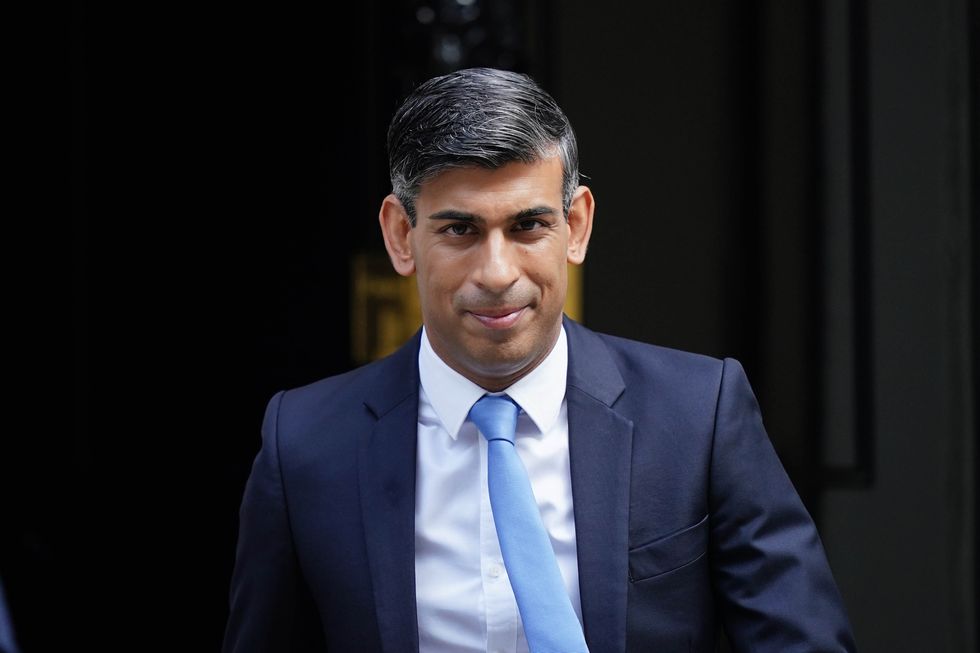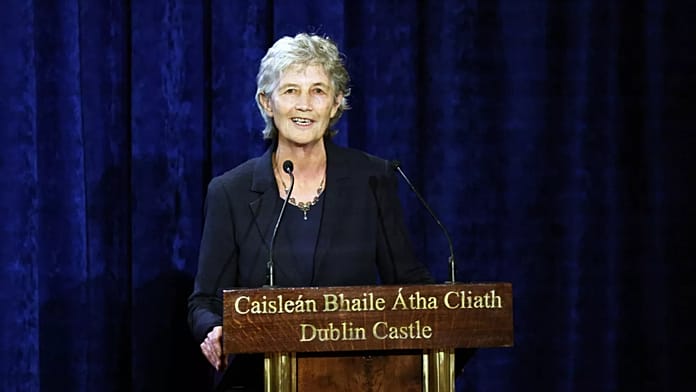How you could reduce stealth tax turmoil as more adults than ever dragged into higher-rate tax band
More adults than ever are at risk of paying the higher rate of tax due to the personal allowance and higher rate tax threshold having been frozen until 2028, a financial advisor has warned.With the tax bands failing to increase in line with inflation, and wages rising, more and more taxpayers will be pulled into higher thresholds of tax, in a fundraising measure known as fiscal drag.By 2022-23, 11 per cent of UK adults (6.1 million) were paying the higher 40 per cent rate of tax, with that figure set to reach 14 per cent (7.8 million) by 2027-28, according to the Institute for Fiscal Studies (IFS).Sam Robinson, principal financial adviser at Almond Financial, shared some tips on how people may be able to reduce or even avoid the impact of certain stealth taxes and tax traps, depending on their personal situation.Knowing the stealth taxes and tax traps will be core to this, he explained.Mr Robinson said: “Any tax can be a stealth tax if thresholds don’t increase in line with inflation, which makes it more important than ever to be aware of the common stealth taxes and tax traps that you could be drawn into.”This includes a 60 per cent tax trap which occurs when someone reaches £100,000 income as their personal allowance (which is currently frozen at £12,570) tapers away.“This means that for individuals earning £100,000-£125,000 there’s a marginal tax rate of 60 per cent on that portion of their income,” he said.Additionally, with the additional rate threshold, the point at which point someone starts paying the 45 per cent tax rate, has reduced from £150,000 to £125,000, meaning people with high incomes now need to pay more in tax.Another rule to watch out for is the rule that Child Benefit and childcare support from the government is withdrawn when people earn an income above certain amount. For instance, as soon as one parent earns more than £100,000, the 30 hours free childcare scheme is entirely withdrawn.Child Benefit is tapered away if a person earns over £50,000, and if the individual earns £60,000 or more, they will lose all of the Child Benefit via the High Income Child Benefit tax Charge.Mr Robinson said: “Receiving income above the range that Child Benefit is withdrawn effectively raises your tax rate over that region, with the amount it raises your tax depending on how many children you have. “If you have three children, you’re looking at a figure in the region of 70 per cent, much higher than the explicit tax rates in the system.“This stealth tax turmoil only worsens for families claiming Universal Credit whilst having their Child Benefit withdrawn, who face a tax of at least 80 per cent (for one child) up to 87 per cent (for three children) if someone in the household earns between £50-£60,000.”Salary sacrificeSalary sacrifice, an agreement between an employer and employee to reduce the employee’s cash pay in return for a non-cash benefit, could mean a person stays within thresholds, the financial adviser explained.Examples of this include pension contributions and cycle-to-work schemes.Mr Robinson said: “The money you sacrifice doesn’t enter your bank account so does not count as income.“For high-income earners and parents alike, salary sacrifice is a clever way to stay within thresholds to avoid 60 per cent tax and withdrawal of Child Benefit.”If a person were to earn £110,000 then they would be over the threshold at which tapering of personal allowance applies, but by contributing £10,000 of this into their pension via salary sacrifice, their taxable income would not exceed £100,000, the financial adviser said, adding: “Their personal allowance would be untouched - saving £6,000 a year for the benefit of their pension.”On the other hand, by leaving £110,000 to the tax system, the taxpayer would pay a 40 per cent rate on £100,000 and 60 per cent on £10,000.High-income parents may also opt to boost their pension contributions in order to avoid missing out on childcare support schemes.The financial adviser said: “Salary sacrifice could also help to keep high-income parents’ income below £100,000, by putting income and bonuses above the threshold into their pension.“The same can be said for mitigating the impact of tapering Child Benefit, whereby parents could utilise salary sacrifice to allocate any gross income over the £50k-£60k threshold into their pension to avoid benefit tapering.“Be careful with salary sacrifice though as this could affect your affordability.”LATEST DEVELOPMENTS:British expats ‘locked out of pensions by Brexit rules'Pensioners to get up to £300 to help pay for heating bills this yearState pension shortfall warning as single pensioners face £3,300 deficitCapital gainsAnother option may be to take income in capital gains, the financial adviser explained.He said: “For those that have the opportunity, taking income in capital gains can help to reduce the amount you pay in tax. “The six-year tax freeze is time-limited, whereas the £100,000 threshold for tapering personal allowa


More adults than ever are at risk of paying the higher rate of tax due to the personal allowance and higher rate tax threshold having been frozen until 2028, a financial advisor has warned.
With the tax bands failing to increase in line with inflation, and wages rising, more and more taxpayers will be pulled into higher thresholds of tax, in a fundraising measure known as fiscal drag.
By 2022-23, 11 per cent of UK adults (6.1 million) were paying the higher 40 per cent rate of tax, with that figure set to reach 14 per cent (7.8 million) by 2027-28, according to the Institute for Fiscal Studies (IFS).
Sam Robinson, principal financial adviser at Almond Financial, shared some tips on how people may be able to reduce or even avoid the impact of certain stealth taxes and tax traps, depending on their personal situation.

Knowing the stealth taxes and tax traps will be core to this, he explained.
Mr Robinson said: “Any tax can be a stealth tax if thresholds don’t increase in line with inflation, which makes it more important than ever to be aware of the common stealth taxes and tax traps that you could be drawn into.”
This includes a 60 per cent tax trap which occurs when someone reaches £100,000 income as their personal allowance (which is currently frozen at £12,570) tapers away.
“This means that for individuals earning £100,000-£125,000 there’s a marginal tax rate of 60 per cent on that portion of their income,” he said.
Additionally, with the additional rate threshold, the point at which point someone starts paying the 45 per cent tax rate, has reduced from £150,000 to £125,000, meaning people with high incomes now need to pay more in tax.
Another rule to watch out for is the rule that Child Benefit and childcare support from the government is withdrawn when people earn an income above certain amount. For instance, as soon as one parent earns more than £100,000, the 30 hours free childcare scheme is entirely withdrawn.
Child Benefit is tapered away if a person earns over £50,000, and if the individual earns £60,000 or more, they will lose all of the Child Benefit via the High Income Child Benefit tax Charge.
Mr Robinson said: “Receiving income above the range that Child Benefit is withdrawn effectively raises your tax rate over that region, with the amount it raises your tax depending on how many children you have.
“If you have three children, you’re looking at a figure in the region of 70 per cent, much higher than the explicit tax rates in the system.
“This stealth tax turmoil only worsens for families claiming Universal Credit whilst having their Child Benefit withdrawn, who face a tax of at least 80 per cent (for one child) up to 87 per cent (for three children) if someone in the household earns between £50-£60,000.”
Salary sacrifice
Salary sacrifice, an agreement between an employer and employee to reduce the employee’s cash pay in return for a non-cash benefit, could mean a person stays within thresholds, the financial adviser explained.
Examples of this include pension contributions and cycle-to-work schemes.
Mr Robinson said: “The money you sacrifice doesn’t enter your bank account so does not count as income.
“For high-income earners and parents alike, salary sacrifice is a clever way to stay within thresholds to avoid 60 per cent tax and withdrawal of Child Benefit.”
If a person were to earn £110,000 then they would be over the threshold at which tapering of personal allowance applies, but by contributing £10,000 of this into their pension via salary sacrifice, their taxable income would not exceed £100,000, the financial adviser said, adding: “Their personal allowance would be untouched - saving £6,000 a year for the benefit of their pension.”
On the other hand, by leaving £110,000 to the tax system, the taxpayer would pay a 40 per cent rate on £100,000 and 60 per cent on £10,000.
High-income parents may also opt to boost their pension contributions in order to avoid missing out on childcare support schemes.
The financial adviser said: “Salary sacrifice could also help to keep high-income parents’ income below £100,000, by putting income and bonuses above the threshold into their pension.
“The same can be said for mitigating the impact of tapering Child Benefit, whereby parents could utilise salary sacrifice to allocate any gross income over the £50k-£60k threshold into their pension to avoid benefit tapering.
“Be careful with salary sacrifice though as this could affect your affordability.”
LATEST DEVELOPMENTS:
- British expats ‘locked out of pensions by Brexit rules'
- Pensioners to get up to £300 to help pay for heating bills this year
- State pension shortfall warning as single pensioners face £3,300 deficit
Capital gains
Another option may be to take income in capital gains, the financial adviser explained.
He said: “For those that have the opportunity, taking income in capital gains can help to reduce the amount you pay in tax.
“The six-year tax freeze is time-limited, whereas the £100,000 threshold for tapering personal allowance is indefinite and has been since 2010; as there’s no government policy for this to ever change it means that steadily more and more people will be dragged into it.
“However, capital gains are taxed between 10 per cent and 28 per cent, which provides an opportunity for the very wealthy to take income from capital gains and pay less tax as a result.”
Forecasting income and expenditure over the upcoming few years is “essential” for effective tax planning, the financial adviser said.
“Some strategies that may result in lower tax at your current income level may result in higher tax if your income increases,” he explained.
“With more adults than ever paying higher-rate tax and this number set to reach 7.8 million by 2027/28, it’s more important than ever to plan for the future.
“Being aware of stealth taxes and planning long-term will help ensure you can alter your finances to mitigate them.”
Aligning funds with one’s long-term objectives is important.
Mr Robinson said: “To be more efficient with your money, it’s important for people to ensure their funds are aligned to their long-term objectives and investment approach. Far too many people are invested incorrectly in this regard.”
The value of pensions and investments can fall as well as rise and people can get back less than they invested.







































